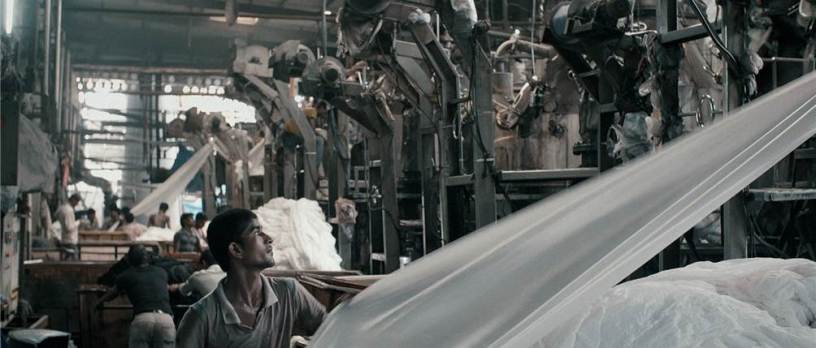Slow-moving documentaries often allow the shot to run, turning the audience’s observation into a deeper, philosophical ‘gaze’ from which we extract a deeper meaning. In contrast to MTV reality, we often do, but then as some philosophers will tell you, the gaze is often problematic. More of a stupor.
Machines avoids the vacuous gaze, yet, it is still slow moving and, given its subject matter, jarringly beautiful. It’s shot by Rodrigo Trejo Villanueva.
With its sparse interviews, it concisely and forcefully gets at the issue of union suppression and the overworked, underpaid societies that result. Documenting India’s industrial revolution, it is redolent of old British reels of factory workers leaving at the end of the day, doffing their caps to the camera in bemusement. But Machine‘s don’t leave at the end of the day.
I used to watch How It’s Made late at night in awe of the beating factories and unseen craft that give rise to modern life. But it seems a shallow and uncritical commercial proposition when set against documentary filmmaking. Machines is craft itself, taking us beyond the screen printing and dye mixing, to the people, culture, and context in which the machines operate.
Some of this context comes from other films, notably The Act of Killing and The Look of Silence and Joshua Oppenheimer’s accompanying press and rehearsed answers. That Western consumption is built on the wages kept low by union busting, and on the resultant intimidation of workers, is a point Oppenheimer makes eloquently, and which Machines summarises effectively.
Unlike Oppenheimer, director Rahul Jain copped out at his IDFA Q&A, with the line “It’s for me to ask the questions, not to answer them.”
But he is very good at asking them.
10/10
